
Lindsey Bomgren, Founder of Nourish Move Love
Lindsey Bomgren Founder of Nourish Move Love This month at Women and Work we are going to feature Lindsey Bomgren, founder of Nourish Move Love.
Women & Work
Dr. Kristen Bracy
Obstetrician – Gynecologist
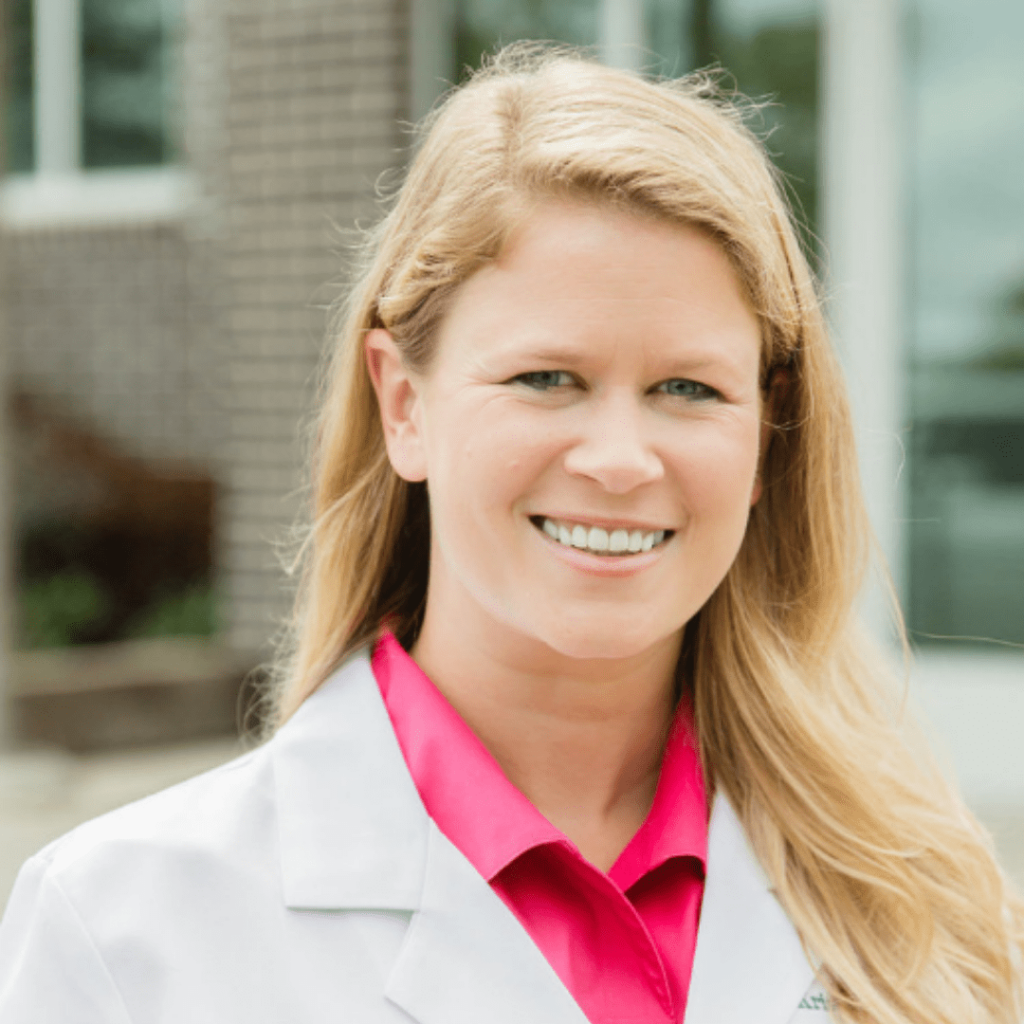
Dr. Kristen Bracy is an OB-GYN and has been with Cornerstone Clinic for Women in Little Rock, Arkansas since 2017. She was raised in San Diego, California.
After residency, she and her husband joined Samaritan’s Purse and spent two years serving in a small remote mission hospital in Africa. When they returned to the US, God directed them to Cornerstone Clinic.
When not working, Dr. Bracy enjoys spending time with her husband and daughters. They love grilling and smoking meat and taking their large German Shepherd for long walks.
Education:
University of California, Davis
Medical College of Wisconsin, Milwaukee
Residency training at St. Joseph Mercy Hospital, Michigan
From the very beginning, this whole thing was all about going overseas and serving the Lord. Medicine was just a means to that end. So, it was totally God. I put in all this hard work and this is what I did it for.
There was no question in my mind this is what I needed to do. It was hard to sell all my stuff and move and we didn’t always have electricity or running water. It was a very different type of medicine than you would have here.
But, the cool thing is that it allowed for a lot of something called “God room.” To leave some “God room” is to leave some room for God to be present and to work and do things that are incredible. And, that is totally what happened.
You don’t have the resources, the medicine, the technology to sometimes save lives that you need to, but it gives you a chance to let God show up and do things that you never thought possible. Medical miracles, you hear about them here, but you saw them there regularly.
God asks us to be His hands and feet, right? Your role in life is to represent Jesus. And, in medicine you do that in a very tangible hands-on way: Helping people with their physical needs.
Jesus did that a lot. In his ministry, a lot of it was healing. Jesus did that because he saw worth. Every person that he spoke to, that he touched, that he interacted with – whether it was a tax collector or the woman at the well. It didn’t really matter. He crossed all the lines because human physical needs cross all classes and economics.
How I feel like I represent Christ is seeing the individual and seeing their worth as image-bearers of God. And because they’re worthy to him, they have to be worthy to me as well. Even if sometimes they’re difficult people, or they’re not the cleanest or the nicest to work with, they’re still image-bearers of God and that gives them worth.
I represent Christ by seeing the individual and seeing their worth as image-bearers of God. And because they're worthy to him, they have to be worthy to me.
Dr. Kristen Bracy Tweet
I’ve had a lot of people ask me If I had to do it again, would I do it? Absolutely not. Except for the fact that I feel unequivocally that God asked me to do it.
Medicine is not something to go into because you think it’s glamorous, prestigious or because you think you’re going to make a lot of money. When you’re on a journey, if you feel like God’s called you to do it, you can’t let anything stop you. Church, family, friends, boys, you can’t, you have to follow that [calling]. The biggest thing is being obedient and to never sway from it.
When you feel like God has placed a calling in your life where he’s placed a sense of “this is where you should go” and “this is what he wants you to do,” then you have to be all in. There’s no room for anything less.
In healthcare, there is one warning that I think I would give women. When women go into the work field, you still have to remember that God made you female and God made you that way to relate to people, to want to minister to them, to care about their heart and their feelings and consider what is more deeply going on behind the scenes.
But the working world is masculine. The working world will want to make you look like a man when you’re done. You have to remember that’s not what God intended you to be.
And so as women are looking into going into healthcare, if God’s calling you to do it, jump in with both feet, but don’t lose who you are in the middle of it. Remember the talents that he gave you and the distinctiveness he gave you with being female, and the ministry that he has given you, specific to that gender. And don’t lose it because that’s a special gift he’s given you. And if you lose it, you’ve lost the whole point.
"The working world is masculine, but that's not what God intended you to be. Remember the talents that he gave you and the distinctiveness he gave you with being female, and the ministry that he has given you, specific to that gender."
Dr. Kristen Bracy Tweet
First and foremost is the Bible. That’s the best resource you can possibly go to. And you compare everything against it. God’s Word is paramount. Reading His word, intentionally for what it is, not for what someone else interprets it to be, and spending time in prayer. Those are your two biggest resources.
Serving overseas taught me a lot about prayer. It changed us quite a bit. Whenever something hard, challenging, or uncertain comes up, we are the first ones to hit the floor on our knees and just pray.
We had a friend not too long ago get suddenly super sick. It was late at night when we heard and pulled our kids out of bed and went to the hospital and prayed for her. I think that’s been lost a little bit. We think that the doctors will take care of it; medicine will take care of it. No- PRAY. That is your biggest ally. The Great Commission is not optional. That is by far and away the best resource I think out there.
C. S. Lewis’ Mere Christianity is good for a really good foundation for why you believe what you believe. Because the first question is not what do I do with my life? The first question is who am I? And who is God?
Do you have that foundation established and what that relationship is? Are you really a Christian? Do you really believe what’s in the Bible? And then let that shape your life.
Then from there launch into, “Okay, God, now what should I do with my life now that I know who I am in light of who you are?” Now, I can ask the question of what do you want me to do? But until you have that squared away you’re asking the wrong thing. But I just can’t stress enough just getting alone with God. You have to do it. It’s important.

Lindsey Bomgren Founder of Nourish Move Love This month at Women and Work we are going to feature Lindsey Bomgren, founder of Nourish Move Love.

Robyn Sanderson Associate Vice President for Student Development at Anderson University At Women and Work we are honored to feature Robyn Sanderson as our Work
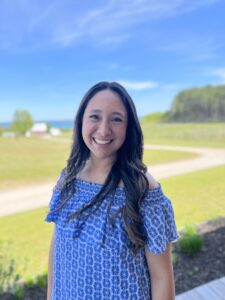
Fernie Cosgrove Child Welfare Social Worker Supervisor It is our pleasure to feature Fernie Cosgrove, our book club coordinator as our Work Done Well Feature.
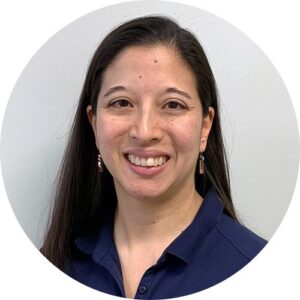
Work Done Well: Julie is the Clinical Director of Youth Programming at Overdose Lifeline, where she provides clinical support and oversight for Camp Mariposa Aaron’s Place and Aaron’s Place Exchange (APEX).
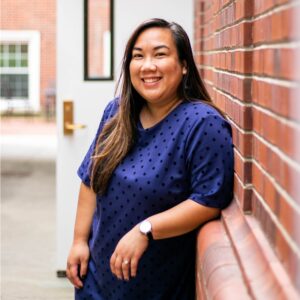
Work Done Well: Bethel is the Soul Care Director at Graceland Church in New Albany, IN.
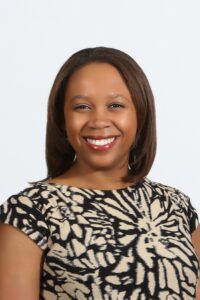
Meet Deanna Southerling Clark, a talented communicator with 12 years of experience in helping brands achieve their goals. Read about her professional journey and her passion for serving her church community.